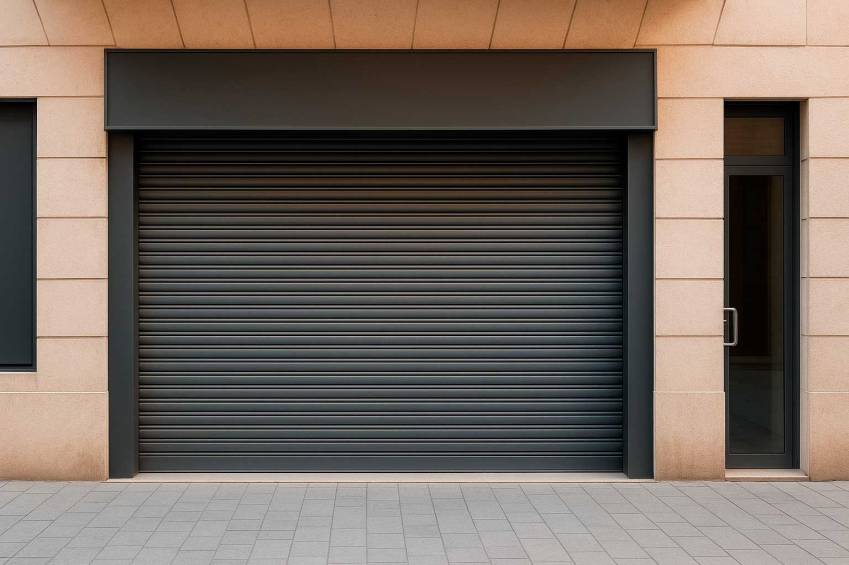
Can you transfer a business without an opening licence? A legal and practical guide to avoid mistakes
Transferring a business can seem like a great opportunity: the premises are already set up, there’s a customer base, maybe even employees… But what if that business doesn’t have an opening licence? Can you still go ahead with the transfer? Or are you stepping into dangerous territory?
In this article we explain it to you step by step, plainly, with real examples and legal tips to save you headaches (and fines).
What it means to transfer a business and the legal implications
When we talk about transferring a business, we mean assigning the operation of a premises or activity to another person, usually in exchange for a price. In practice, it’s like selling “the right to continue” an activity that’s already up and running, together with the furniture, the clientele or even the lease.
But beware: the transfer does not automatically mean the new holder can lift the shutters and keep operating just like that. The transfer does not replace municipal licences or the legal obligations required by the City Council.
Legally, the new holder assumes direct responsibility for the use of the premises and compliance with regulations. Therefore, if the business does not have an opening licence, the transfer can become a serious problem.
The opening licence: what it is and why it’s essential for a commercial premises
The opening or activity licence is a municipal permit that certifies that the premises meet the safety, accessibility and usage conditions required for the activity carried out there.
Without this licence, the business cannot legally operate, even if it’s “set up” or “already running.”
Types of licences depending on the activity and the premises
Depending on what you do on the premises, there are two main types:
Innocuous activities: They do not generate disturbance, environmental risk or danger (for example, a clothing shop or a hair salon).
Regulated/qualified activities: They involve noise, waste, machinery or risks (bars, workshops, restaurants…).
Each type requires different technical conditions, such as soundproofing, ventilation or extraction ducts.
Consequences of operating without an opening licence
Here’s the tricky part: opening a business without a licence can lead to fines ranging from €300 to over €6,000, and even the temporary or permanent closure of the premises.
In addition, the City Council may order the immediate cessation of activity, even if the transfer has been signed and the new holder has paid.
Transferring businesses without a licence: is it legal or prohibited?
The big question. Can you transfer a business that doesn’t have a licence? The short answer: yes, but only under very specific conditions.
What Spanish regulations say about transfers without a licence
In Spain, transfers are not directly regulated by a single state law, but by the Civil Code, the Urban Leases Act (LAU) and municipal ordinances.
No rule expressly prohibits a transfer without a licence, but the lack of a licence prevents the activity from being carried out, which in practice makes the business “inoperable” until it is regularised.
In other words: you can buy the premises, the furniture and even the trade name, but you won’t be able to open for even a single day without having the municipal permit in order.
Cases where you can sign a conditional transfer
There are situations in which the transfer is carried out “subject to” obtaining the licence.
For example:
When the buyer agrees to take on the licence procedure.
When a clause is included in the contract making full payment conditional on the moment the licence is obtained.
In this way, both parties are protected and the process proceeds legally.
Risks and responsibilities when buying or selling a business without a licence
This is where many entrepreneurs stumble. Signing a transfer without verifying the licence is not only a mistake but reckless.
Possible fines and penalties for both parties
If the buyer starts the activity without a licence, they may face:
Financial penalties for illegal opening.
Immediate closure of the premises.
Loss of the initial investment (furniture, refurbishments, advertising…).
And the seller doesn’t get off scot-free: if they concealed the lack of a licence or acted in bad faith, they can be sued for breach of contract.
How to protect yourself through the contract or specific clauses
If you decide to proceed with a transfer without a licence, at the very least include in the contract a hold-harmless clause and a condition precedent clause stating that the deal is contingent upon obtaining the licence.
It’s also advisable to attach technical reports or certificates proving that the premises meet the requirements or are in the process of being regularised. A good lawyer or adviser specialising in transfers can draft these clauses to save you future troubles.
How to regularise the premises before or after the transfer
The best decision is always to regularise the licence before signing the transfer. But if you’ve already done it, all is not lost.
Steps to apply for a new opening licence
Check with the City Council the specific requirements according to the activity.
Hire a technician (engineer or architect) to draft the activity project.
Submit the application for the licence or the responsible declaration.
Wait for the municipal inspection, if applicable.
Once approved, you can legally open.
Alternatives: responsible declaration or change of holder
In recent years, many City Councils allow you to start the activity by filing a responsible declaration, which speeds up the process if you meet the requirements. And if the previous holder did have a licence, you can request a change of holder, a much quicker and simpler procedure.
Expert tips before accepting a transfer without an opening licence
If someone offers you a business that’s “set up and operating” but without a licence, don’t rush. Do your homework.
Technical and legal review of the premises
Before signing anything, check:
That the premises comply with planning and safety regulations.
That there are no prior sanctions or open proceedings.
That the activity you want to carry out is compatible with the area.
Always request municipal reports or consult the planning department directly. A small detail can make the difference between opening in two weeks or being stuck for months.
Consult the City Council or a specialised adviser
City Councils usually have activity licence departments where you can ask questions before doing the transfer. You can also turn to a specialist adviser in transfers and licences to guide you throughout the process.
If you don’t know where to start, you can visit Business in Spain for professional advice and to find businesses for sale with all documentation in order.
Conclusion: what to do if you’re offered a business without an opening licence
In short, yes, you can transfer a business without an opening licence, but doing so without caution is playing with fire. The transfer will only be a good opportunity if you make sure to regularise the situation before starting the activity or if you sign clear conditions in the contract.
Our advice is simple: don’t let excitement or haste carry you away. Verify everything, consult professionals and make sure each step is well documented.
And if you’re looking for real, safe and transparent opportunities, remember that at Business in Spain you can find businesses ready to transfer with licences, permits and personalised advice.
Because in the end, a good business is not just bought… it’s built with prudence, legality and common sense.









